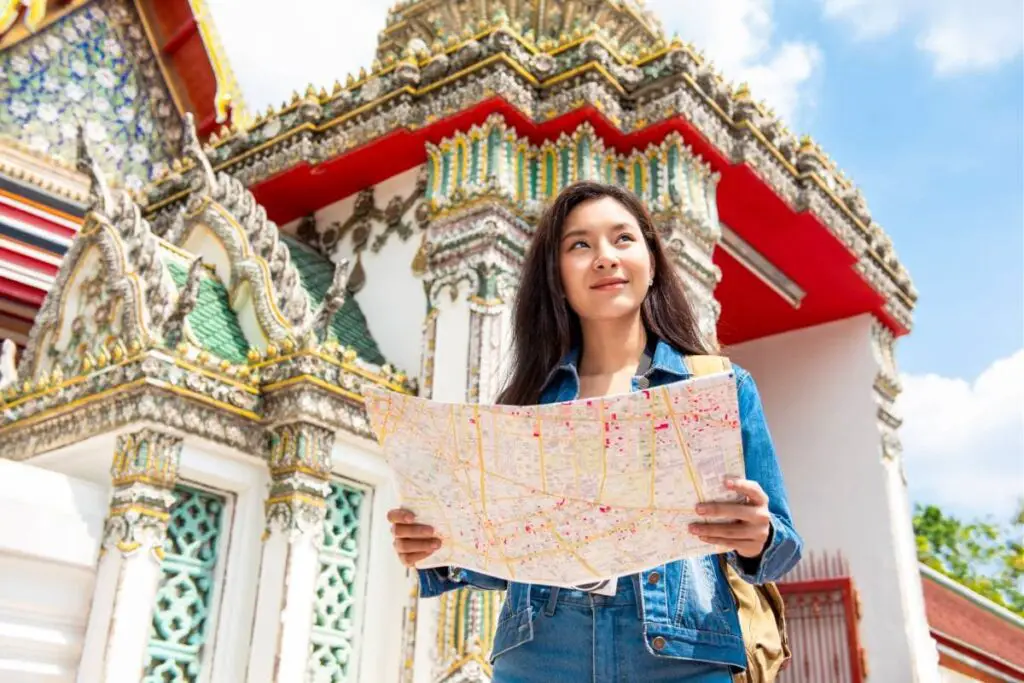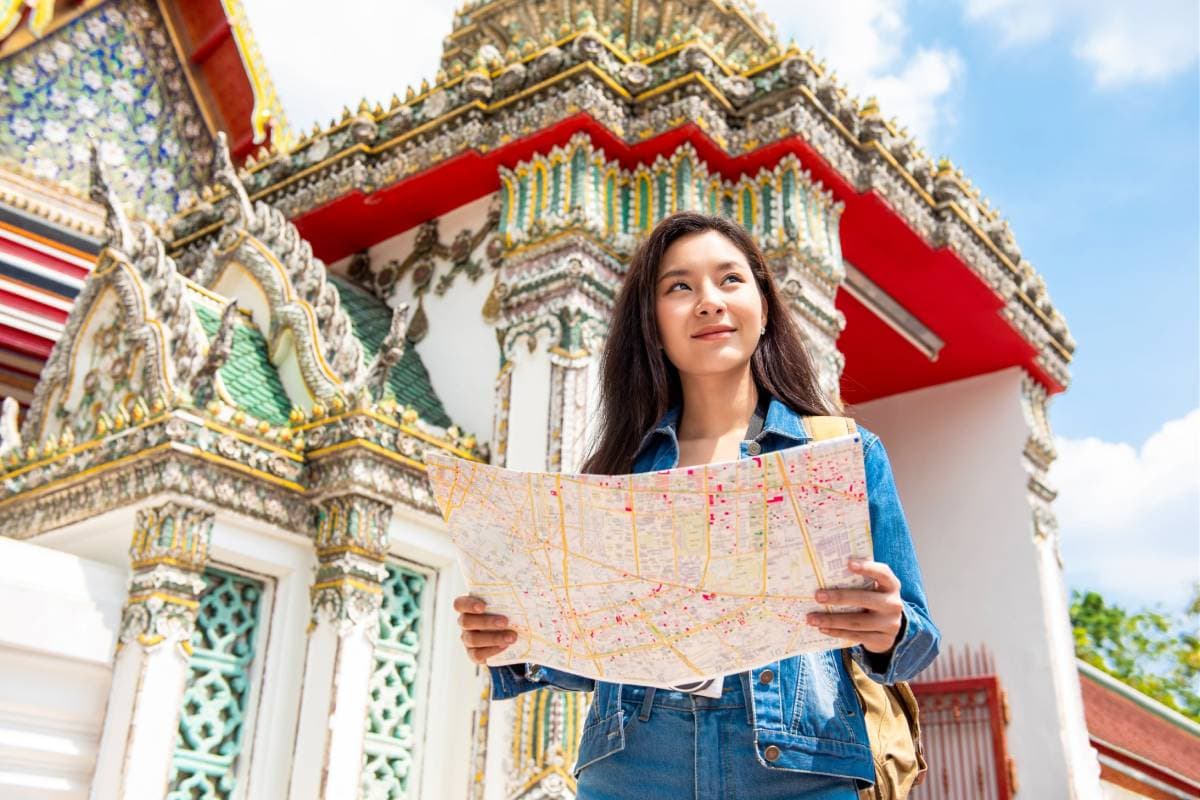Solo travel can be as daunting as it can be for first-time travelers or those who used to have companions during their vacation. Some have mixed feelings as they are about to enter uncharted territory. Of course, travel is already expensive, but what makes solo travel more expensive?
Solo travel is expensive when your travel date falls during a peak season. Hotel accommodations and transportation costs can also contribute to high solo travel expenses. Cruise ships also often favor couples in terms of pricing, and food costs may increase when not shared.
It seems counterintuitive that traveling alone may be more expensive—after all, it’s just one person—right? There are several reasons why this is not true, and you may find the expenses rake up when you are on your ace! This article will discuss why solo travel is too expensive compared to having a companion.

1. Your Solo Travel Falls on a Peak Travel Season
If you want to travel solo on days nearing a critical holiday or a high-demand season in a particular area, such as summer or winter, expect transportation and accommodation expenses to go high.
Often solo travelers choose peak season for the safety in numbers appeal—tourist sites may become less policed out of peak tourist times. Peak season is also a great time to meet people—which is sometimes essential for solo travelers.
However, the travel cost increases because many people will book their flights and hotel rooms for their vacation or travel. Transportation and accommodation prices also rise as demand increases due to increased bookings and inquiries.
If you wish to avoid higher expenses from traveling solo, you may want to look into the peak travel season for your destination and try to avoid scheduling your travel on those dates.
2. Hotel Accommodations for Solo Travelers Are Pricey
Everyone thinks hotels and resorts are the best places to stay when they travel. However, they are the most expensive due to the location of their facility as a popular area and the soaring operating costs. Inflation can also contribute to high hotel prices.
Demand also plays a vital role in the expensive cost of booking a hotel room. Hotels and resorts will increase prices to meet the market if more tourists go to these popular areas during their peak tourist season.
Also, most hotel accommodations booked by tour companies rest on the concept of double occupancy. If the traveler wishes to have the room alone or does not have a companion to share the expense, the traveler will end up paying a single supplement to cover the room’s total cost.
to cover the room’s total cost.
To avoid high hotel booking costs, you may consider booking early during the off-peak season or when the demand is still low. You may also consider taking a hostel or motel to reduce accommodation costs. You may also want to book a hotel not too far from the popular tourist destination as they may offer lower fees.
You can also use discounts, coupons, and deals to help you find a hotel with cheaper rates.
3. Cruise Ships Are Much More Expensive for Solo Travelers
Like hotel accommodations, going on a cruise solo can bring a hefty fee.
Most cabins inside a cruise ship serve to accommodate two or more people. Some cruise operators charge a single supplement for those who wish to have a larger space on their own or if the available cabin is for two or more people.
Others like Princess Cruises, Norwegian Cruise Line, and Holland America Line offer competitive packages for solo travelers to entice them to get their services. Cruise lines implement a single supplement fee—an extra charge added to single occupants occupying a space made for two travelers.
Cruise operators will slash their single supplement fees to attract potential travelers if travelers don’t fully book before the ship’s sailing date. There are instances that they forego a single supplement to get bookings. Sometimes, it may pay you to wait until close to the departure date when you make your booking!
Also, if your travel date falls during a peak season or your destination is popular with tourists, it will increase the price. Rising fuel prices for ships can also significantly affect the passengers’ fares.
The size of the ship one plans to take and the amenities included in the cruise tour can also contribute to the fee a solo traveler has to pay. If they have more passengers, the ship will require more personnel to serve them, likely affecting the costs for a solo traveler.
If you plan on traveling solo via cruise ship, you may want to book ahead of time or avail the cruise line’s promos to reduce the costs.
If you would like some more information about booking a solo cabin—check out my article: [How to Book a Solo Cabin on Royal Caribbean Cruises]
4. Flights Can Be Expensive
Again, the supply and demand laws affect how airlines charge their customers. Airlines can increase fares as more and more tourists book their flights to top tourist destinations.
If you are a solo traveler flying in business class, expect to be hit with a higher fare. The number of people taking the business class will also affect the fees for the rest.
The soaring jet fuel prices also affect the fares as airlines pass this additional operating expense to travelers.
If the airline changes its flight route to avoid conflict areas to reach its destination, it would add more fuel consumption and travel time. Thus the airlines pass down the increasing fares on to consumers.
Booking your flight ahead of time can help reduce your airfare. You may also check with fare comparison sites to see if another airline is offering a route that is cheaper than usual. If you are a frequent traveler, you may want to use your frequent flyer points to save on airfare and other fees.
5. Food Prices May Be Higher When You Travel Alone
You inevitably must spend money on food while on a vacation or business trip. After all, it is a necessity.
While you may think traveling solo will probably cut back your food expenses—they will often increase when you travel alone. While couples and groups typically share costs such as food and wine, you have to foot the bill when you are alone.
For example—wine is often cheaper by the bottle than by the glass, and ordering a large platter to share is often cheaper than buying individual portions.
Restaurants and food stalls in popular tourist areas typically have higher rental fees and transportation costs than other food establishments outside these areas. So they are most likely to pass on the burden to their customers.
If you are adventurous regarding food, you can ask the locals in the area for recommendations. It can be an opportunity to try the local cuisine and help you avoid ’tourist traps’ with elevated prices.
If your accommodation has a kitchen, you may want to consider buying groceries at a local market and doing the cooking by yourself. That way, you could save money by avoiding eating at restaurants. You may also want to choose a lodging place that offers packages with free meals.
6. Land Transportation Costs Can Be Higher for Solo Travelers
If you are traveling on a group tour or with friends, family, or companions, your group will typically share land transportation costs. However, that will not be the case if you travel solo, as you have to pay for a taxi or Uber when your destination is an urban tourist area.
You can study the rates before your travel date to choose the cheaper fares when traveling by land. You can also avail of public transportation to save costs. Renting a car can be a great option if you plan to stay in the area for a more extended period.
A common misconception about solo travel is that it can get sad. However, that’s not often the case. I’ve written about the reasons why solo travel isn’t sad in my complete guide. [Is It Sad to Travel Alone? What You Need to Know]

